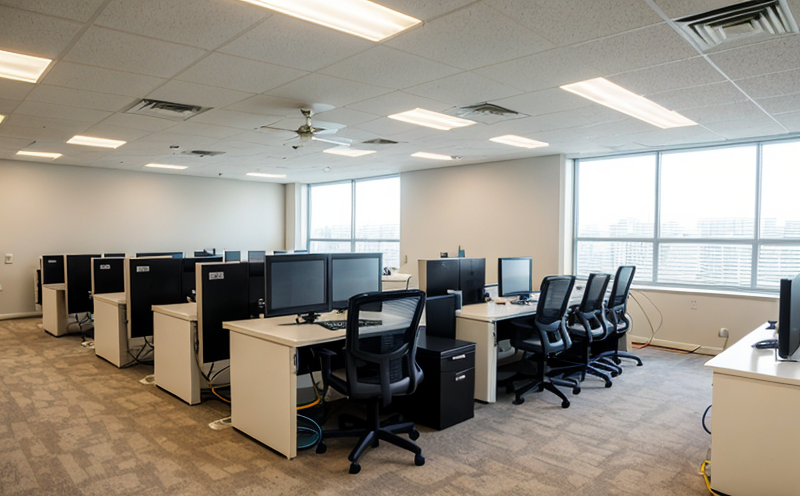IES LM 79 Energy Efficiency and Certification Testing of Solid State Lighting
The IES LM-79 standard is a cornerstone in the evaluation of solid-state lighting (SSL) systems, specifically focusing on energy efficiency and certification requirements. This standard is crucial for ensuring that SSL products meet stringent performance criteria set by regulatory bodies, which are designed to promote sustainable development and energy savings.
The scope of IES LM-79 testing encompasses the measurement of electrical power consumption, light output, and optical properties under various operating conditions. This comprehensive approach helps manufacturers verify compliance with international standards such as IEEE 1598-2010, which provides guidelines for the measurement of luminaires, and EN 62031 series, which covers the characteristics of electric lamps.
For quality managers and R&D engineers responsible for product development, IES LM-79 testing is essential. It ensures that new products not only meet regulatory requirements but also perform efficiently in real-world applications. Compliance officers can leverage this testing to maintain a competitive edge by ensuring their products are up-to-date with the latest industry standards.
The methodology involved in IES LM-79 testing includes the following key steps:
- Setting up test conditions that replicate the intended use environment of SSL systems
- Measuring electrical power consumption and light output using specialized equipment such as power analyzers and photometers
- Recording data at various operating temperatures and illumination levels to ensure consistent performance
The importance of this testing cannot be overstated. It ensures that SSL products are energy-efficient, which can lead to significant cost savings for users over the long term. Additionally, compliance with IES LM-79 standards is a prerequisite for certification by many regulatory bodies, including UL and ETL, thereby facilitating market access in global markets.
Manufacturers who invest in IES LM-79 testing can expect numerous benefits:
- Enhanced product reliability
- Improved energy efficiency leading to reduced operational costs
- Increased market competitiveness through compliance with international standards
Scope and Methodology
The scope of IES LM-79 testing is broad, covering the evaluation of SSL systems from a variety of angles. The primary focus is on measuring electrical power consumption, light output, and optical properties under different operating conditions. This includes testing at various temperatures to simulate real-world usage scenarios.
The methodology involves setting up the test environment to mimic the intended use conditions for SSL products. This setup typically includes:
- Temperature-controlled chambers
- Lighting fixtures with variable power supply
- Photometers and spectrophotometers for measuring light output
- Power analyzers to monitor electrical consumption
Data is collected at various points during the test, including initial startup, steady state operation, and shutdown. The data is then analyzed using statistical methods to ensure consistency across multiple samples.
Benefits
- Enhanced Product Reliability: By simulating real-world conditions during testing, manufacturers can identify and rectify any issues that may arise under normal usage. This leads to more reliable products.
- Improved Energy Efficiency: Ensuring that SSL systems operate efficiently is crucial for reducing operational costs and conserving energy resources.
- Increased Market Competitiveness: Compliance with international standards, such as IES LM-79, can open up new markets and enhance brand reputation. It also facilitates easier certification processes by regulatory bodies.
International Acceptance and Recognition
The IES LM-79 standard is widely accepted across the globe, with many countries adopting it as a benchmark for SSL product testing. Its acceptance by major regulatory bodies such as UL and ETL makes compliance with this standard essential for manufacturers aiming to enter international markets.
- UL: The Underwriters Laboratories (UL) is one of the leading organizations for product safety certification in North America. Compliance with IES LM-79 ensures that SSL products meet UL's stringent requirements for energy efficiency and performance.
- ETL: ETL Services Inc., a division of Intertek, provides certification services to manufacturers worldwide. ETL recognition of IES LM-79 compliance is essential for gaining access to the North American market.





